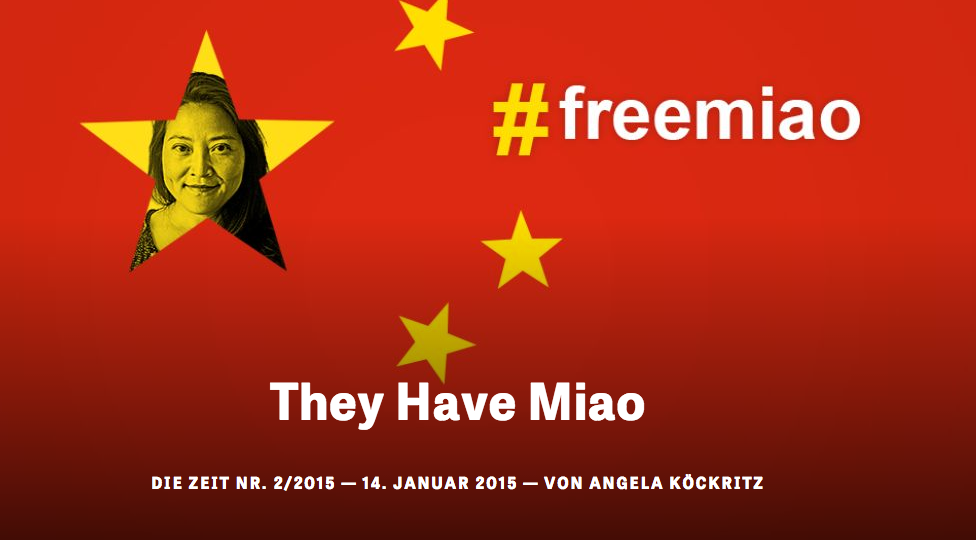By Robin Ewing
The mainland Chinese assistant to a German journalist was arrested in Beijing in October after taking photos at Occupy Central in Hong Kong and posting them to her WeChat account. She is still being held, almost four months later, for “inciting a public disturbance,” and the German correspondent, Angela Köckritz, was threatened and interrogated by Chinese State Security, Köckritz writes in her compelling first person account here.
Since Occupy Central began in late September, the organisation Chinese Human Rights Defenders has documented 113 cases of detention for supporting the pro-democracy movement in the mainland, with 39 people still in jail. The organization’s website lists everyone who has been detained, including Zhang Miao, still imprisoned and one of five arrested in the Songzhuang art colony outside Beijing. In her article, Köckritz estimates these numbers are actually higher.
Zhang’s photos and conversations on WeChat were used against her by the authorities. My Chinese students need no explanation of what WeChat is. After all, 468 million people are on it. Run by Chinese Internet giant Tencent, Inc., it’s China’s messaging app of choice and functions much like WhatsApp or Facebook Messenger. It’s also censored.
Authorities widely practice what is called hidden censorship, meaning that sensitive photos and messages are blocked but the user doesn’t realize it. Everything looks normal. During Occupy Central, this type of censorship was used to block mainland Chinese users from seeing images posted on WeChat by users in Hong Kong.
“The Internet makes citizens transparent to Chinese authorities,” Köckritz writes in her story.

